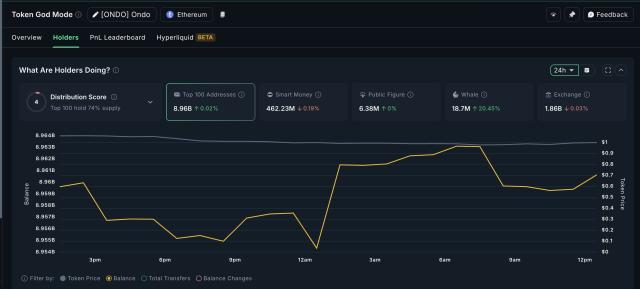With the rapid development of the virtual asset market, Taiwan's Financial Supervisory Commission (FSC) continues to upgrade its anti-money laundering supervision for related businesses. Sanquan Tongzheng Co., Ltd. was fined NT$1.5 million yesterday due to multiple KYC and transaction monitoring deficiencies, becoming the latest case. In the past year, over six businesses have been penalized for similar violations.
Table of Contents
ToggleSanquan Tongzheng Fined NT$1.5 Million by FSC
On July 29, the FSC's Securities and Futures Bureau announced that Sanquan Tongzheng Co., Ltd. (operating BitStreetX exchange) was fined NT$1.5 million for violating Articles 8, 10, and 13 of the Anti-Money Laundering Act. The penalty stems from a project inspection at the end of 2024, revealing deficiencies in customer review, transaction monitoring, and record keeping.
(1) Customer review measures failed to obtain names of corporate client senior management, did not confirm high-risk clients' wealth and fund sources, and did not assess clients' financial capacity before approving increased deposit and withdrawal limits.
(2) Transaction monitoring did not include client registration IP addresses in the monitoring scope and failed to record closure dates for suspicious transaction warning cases.
(3) Transaction records in the accounting system were inconsistent with actual transactions.
(Taiwan Financial Supervisory Commission Strikes Again! MaiCoin and Bit Fined 1.5 Million New Taiwan Dollars for Anti-Money Laundering Deficiencies)
The Financial Supervisory Commission has consistently made it clear that they will maintain a certain inspection frequency and enforcement intensity to ensure that Taiwan's VASP operators comply with international anti-money laundering standards and FATF requirements, avoiding systemic risks.
From Fines to Transformation, Regulatory Compliance Becomes the Focus of Virtual Currency Industry
As the demand for virtual assets in the financial system continues to grow, compliance has become a necessary condition for VASP. The Financial Supervisory Commission's consecutive actions not only reveal the current shortcomings of the industry but also promote various platforms to accelerate the establishment of risk control systems and improve KYC and review processes, with the Taiwan virtual asset market expected to develop in a more transparent, safe, and sustainable direction.
Risk Warning
Cryptocurrency investment carries high risks, and its price may fluctuate dramatically. You may lose all of your principal. Please carefully assess the risks.
After the major recall fever in Taiwan, the "immigration" volume has soared, with Google keyword heat rising by 100 compared to the past 90 days. Recently, a Binance Thailand user demonstrated the smooth withdrawal service from crypto accounts to local bank accounts, making his relocation life more convenient. If deciding to move to Thailand, what visa options are available? Moreover, crypto asset holders only need to be under a valid visa to complete Binance Thailand's identity verification (KYC).

Table of Contents
ToggleImmigration to Thailand: What Visas are Available for Taiwanese?
Taiwanese who want to immigrate or long-term reside in Thailand can choose suitable visas based on different needs.
| Visa Type | Residence Time / Renewal | Suitable Targets and Key Conditions |
|---|---|---|
| Non-Immigrant B (Business/Work) | Initially 90 days, renewable up to 1 year | Employment, entrepreneurship, investment; requires guarantee from a Thai company or organization |
| Investment Visa (BOI, General) | 1 year, renewable | With BOI project certification or direct investment of 10 million baht or more in Thailand |
| Marriage Visa | 1 year, renewable | Applicable to those married to Thai citizens, requires financial proof |
| Retirement Visa (O-A) | 1 year, renewable | 50 years or older, financially capable, cannot work in Thailand |
| Elite Visa | 5-20 years | High membership fee, low application threshold, suitable for high-net-worth individuals |
| Long-Term Resident Visa (LTR) | 10 years valid (first 5 years) | Wealthy individuals, remote/senior professionals; high property/income standards |
| Destination Thailand Visa (DTV, Digital Nomad/Working Holiday) | Single stay up to 180 days, renewable for 180 days each time | Remote work, soft skills experience, tourism, etc. |

Visa Exemption and Stay: Taiwan generally allows visa-free travel for up to 60 days or 15 days on arrival, suitable for short-term tourism, not for immigration.
DTV (Destination Thailand Visa): Targeting digital nomads, remote work/training, or short-term medical purposes, applicable to Taiwan from July 2025, application fee around 11,000 Taiwan dollars, single stay of 180 days, renewable once.
LTR (Long-Term Resident Visa): Requires financial capabilities (such as assets of 1 million USD or annual income of 80,000 USD), allows 10-year long-term residence and legal work, cannot directly convert to permanent residence/citizenship.
Permanent Residence/Naturalization: Requires holding a non-immigrant visa for 3 years, with substantial investment or special background, and can consider naturalization after 10 years, with high thresholds and a lengthy process.
Retirement Visa (O-A/O-X): Limited to those over 50 years old, with sufficient financial assets and health insurance.
Application Process and Precautions
All long-term visas require proof of fund sources, health insurance, and good conduct certificates.
Most visa types require annual reporting and renewal, and compliance with local Thai regulations.
Starting from 2025, entry with visa-free/tourist visa requires prior electronic travel authorization (ETA).
Thailand offers diverse long-term residence or immigration visa options for Taiwanese, including employment, investment, marriage, retirement, elite visas, and digital nomad programs. Selection should be flexible based on age, financial capacity, professional background, and purpose.
Immigrate to Thailand! Convenient Withdrawal of Digital Assets on Binance
A user shared their experience using Binance Thailand for cryptocurrency withdrawal. The user noted that Binance Thailand operates independently like the US version and requires additional KYC verification, including having a local bank financial card and long-term visa.
The user successfully converted stablecoins to Thai Baht and deposited them into a local bank financial card. They mentioned a transaction fee of 20 Thai Baht, with a quick withdrawal process and more favorable exchange rates compared to traditional currency exchange services. This development is significant for long-term foreign residents in Thailand, as it reduces the hassle of relying on friends to pay rent and utility bills. This progress aligns with the broader trend of the Thai government promoting cryptocurrency integration into daily economic activities. As digital assets become increasingly used in financial transactions, Binance Thailand's service provides a more convenient financial solution for foreign residents.
Binance Thailand Identity Verification Supported by Visa
Risk Warning
Cryptocurrency investment carries high risks, with potentially significant price volatility, and you may lose all your principal. Please carefully assess the risks.







